Related Articles
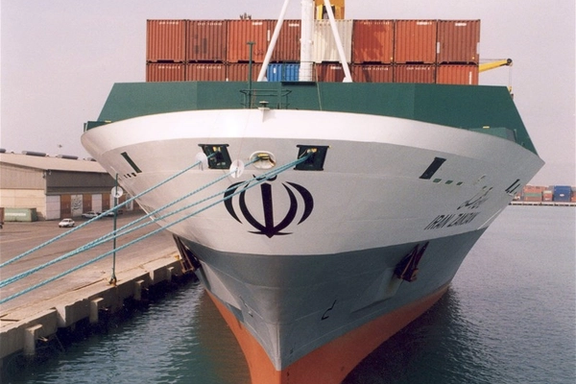
A hacker group said it disabled communications on more than 60 Iranian oil tankers and cargo ships, severing links between the vessels, their ports, and the outside world in one of the largest cyberattacks on the country’s maritime sector.
The group, known as Lab-Dookhtegan (Sewn Lips), told Iran International that it hacked into the systems of the National Iranian Tanker Company (NITC) and the Islamic Republic of Iran Shipping Lines (IRISL), disrupting operations on 39 tankers and 25 cargo ships.
The hackers said the breach was carried out by infiltrating Fanava Group, an Iranian IT and telecoms holding company that provides satellite communications, data storage, and payment systems.
They said they obtained “root-level” access to the Linux operating systems running the ships’ satellite terminals, enabling them to stop Falcon, the control software at the heart of Iran’s maritime communications.
Stopping Falcon means complete disconnection between the ships and shore, the group said, adding that the hack rendered automatic identification system (AIS) tracking and satellite links inoperable.
NITC and IRISL targeted
The two state-linked companies are central to Iran’s sanctioned economy.
NITC, a subsidiary of the National Iranian Oil Company, is one of the Middle East’s largest tanker fleets with more than 46 vessels and a total annual capacity of 11 million tons. Its tankers, such as the Amber, Apama, Deep Sea, Fortune and Faxon, transport Iranian crude globally, often switching off tracking systems to evade sanctions.
IRISL, with a fleet of about 115 vessels, is Iran’s largest cargo operator and ranked the world’s 14th biggest shipping line by Alphaliner in 2022. Its ships, including Abyan, Avang, Parisan, Radin and Touska, have been sanctioned by the US, EU and UN for their role in supporting Iran’s nuclear and missile programs.
Both companies were sanctioned by the US Treasury in 2020 for aiding the Islamic Revolutionary Guard Corps’ Quds Force, the extraterrestrial wing of the IRGC.
This is not the first time Iranian shipping has been targeted. In March 2025, Lab-Dookhtegansaid it disrupted the communications of 116 vessels belonging to the same two firms. At the time, the group claimed the attack was timed to coincide with US operations against Iran-backed Houthis in Yemen.
US and European sanctions have already limited Iran’s access to advanced maritime technology, insurance, and international ports, leaving the fleets more exposed to cyber and physical threats.
Fanava Group, founded in 2003 and headquartered in Tehran, has yet to respond to requests for comment.
The cyberattack comes as Iran faces growing scrutiny of its shipping and oil-export networks. Western governments accuse Tehran of using its maritime fleet to mask oil sales to China and others, while also supplying weapons to proxy groups including Hezbollah and Yemen’s Houthis.
In the latest effort to stop Tehran's oil exports, the US sanctioned 13 companies and eight vessels over suspected ties to Iran, the Treasury Department said on Thursday.

Iran’s Ministry of Intelligence issued secret guidance warning ministries and major companies to prepare for the likely return of punishing United Nations sanctions, documents reviewed by Iran International show.
The Intelligence Ministry said that the return of so-called snapback sanctions will include a ban on arms sales, freezing of assets and foreign currency accounts of companies abroad.
“Re-sanctioning of legal and natural persons active in industries such as oil, petrochemicals, banking, shipping, insurance and sensitive technologies will be activated,” the document said.
Potential fallout could roil markets and exacerbate unemployment and deepen popular discontent, the ministry added.
“Severe currency fluctuations, reduced purchasing power, increased unemployment, layoffs and heightened social discontent are to be expected,” the Intelligence Ministry said.
The snapback mechanism is part of UN Security Council Resolution 2231, which endorsed a 2015 deal over Iran's disputed nuclear program called the Joint Comprehensive Plan of Action (JCPOA).
Under Resolution 2231, any party to the accord can file a complaint accusing Iran of non-compliance. If no agreement is reached within 30 days to maintain sanctions relief, all previous UN sanctions would automatically “snap back,” including arms embargoes, cargo inspections and missile restrictions.
Iran’s Intelligence Ministry also pointed to potential alternative partners for the Islamic Republic to evade the sanctions.
“Identify alternative suppliers in countries like China, Russia, Iraq, etc., which will be less affected by sanctions,” the statement said.
The guidance also warned of renewed threats to national security including cyberattacks on critical infrastructure.
“Increased targeted cyberattacks on economic infrastructure, focusing on supply chains, automation, and financial management, as well as efforts by foreign intelligence services to infiltrate through third parties, contractors, or organizational applications, will be some of the threats,” the statement said.
France, the United Kingdom and Germany told Iran they would restore UN sanctions unless it reopened talks on its nuclear program immediately and produced concrete results by the end of August.
Iranian diplomates last met representatives of the three European countries in Istanbul on July 25.
Iran’s Foreign Ministry spokesman Esmail Baghaei described the meeting with Britain, France and Germany as a “test of realism” for the E3 powers, calling it a chance for them to correct past positions.
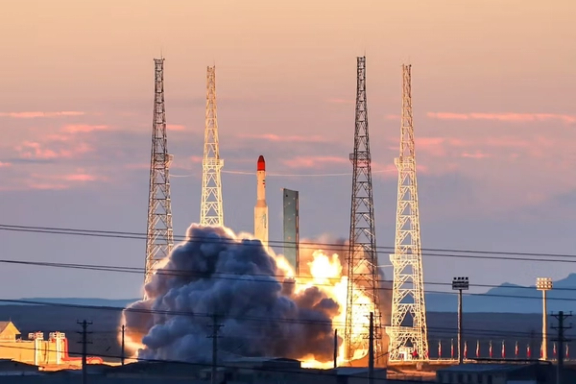
A procurement network tied to a shadowy Iranian military organization stretches into Europe using front companies to supply sensitive technology to the Islamic Republic’s nuclear program, according to an Iran International investigation.
The network is run on behalf of the Organization of Defensive Innovation and Research (SPND), a Defense Ministry body established in 2010 which the United States calls a successor to Iran’s alleged pre-2004 nuclear weapons program.
Western governments have sanctioned SPND for years, citing its role in the potential proliferation of weapons of mass destruction.
The network purchases dual-use and military-grade equipment, including in the field of neutronics—a highly sensitive discipline vital to controlling chain reactions in nuclear reactors and, in a military context, producing or controlling neutrons for weapons design, a source familiar with its activities said.
“This network purchases dual-use and military-grade equipment, including neutronics and other sensitive components, on behalf of SPND,” the source said.
Such capabilities can be used for reactor safety, protection from radiation and can have military applications for producing nuclear weapons.
Isatis group and SPND links inside Iran
Inside Iran, the procurement effort is anchored by companies operating under the Isatis name. Corporate and academic records link two SPND personnel, Hadi Zakeri Khatir and Ebrahim Haji-Ebrahimi, to Isatis Danesh Tolid Tajhiz, one of the group’s entities.
Zakeri Khatir, a faculty member at a university linked to Iran's Islamic Revolutionary Guard Corps, serves as vice chairman of the board. Haji-Ebrahimi is listed as a technical engineer with a background in nuclear fusion studies.
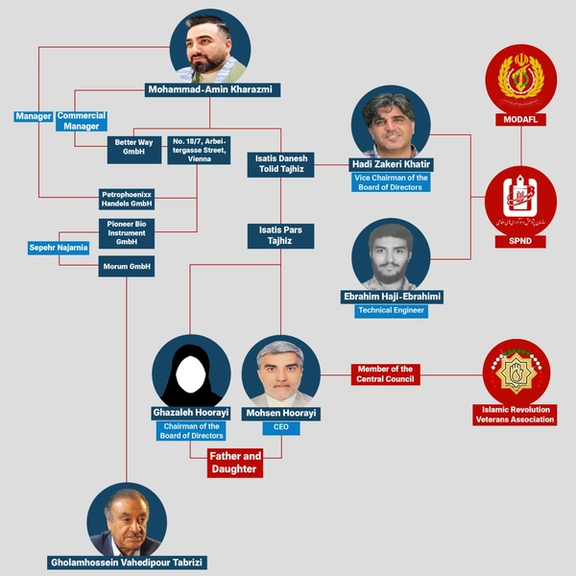
Isatis presents itself online as a holding company with multiple subsidiaries in steel, cement and industrial equipment.
However, Iran International found that some of these firms—such as Isatis Foolad Tajhiz and Isatis Siman Tajhiz—remain unregistered in official records, suggesting the size and activities of the firm are not readily transparent.
Isatis Holding did not respond to requests for comment by Iran International.
European hub in Vienna
The network’s overseas hub is Vienna, according to the informed source and company registration documents obtained by Iran International.
Austrian commercial records show that Mohammad-Amin Kharazmi, son of Isatis co-founder Saeed Kharazmi, manages Better Way GmbH, a company registered in 2018 at a residential address in Vienna’s Margareten district.
Mohammad-Amin Kharazmi told Iran International: “I categorically deny any commercial or other activities connected, directly or indirectly, to Iran’s nuclear program.” He said he never had any legal or actual role in those entities.
The same address is used by two other firms—Pioneer Bio Instrument GmbH, a registered medical equipment supplier, and Petrophoenixx Handels GmbH—both with Iranian nationals in management roles.
Neither company responded to requests for comment by Iran International.
Kharazmi said many Iranian firms provide foreign addresses just to exaggerate their profile.
Better Way lists no website or contact details. Its declared business is online retail, with reported assets of roughly €420,000 at the end of 2023. On its own website, Isatis Danesh Tolid Tajhiz names Better Way as a European partner.
Legal cover, strategic depth
Israeli strikes during a 12-day war in June targeted SPND sites and killed multiple nuclear scientists.
The United States has repeatedly sanctioned SPND and affiliated companies, citing their role in “dual-use research and development activities applicable to nuclear weapons and nuclear weapons delivery systems.”
SPND’s work has drawn repeated censure from the International Atomic Energy Agency, and US sanctions target more than 30 of its scientists and multiple front companies.
In 2024, Iran’s parliament passed a law granting SPND official recognition under Iranian law. The act placed the organization directly under the authority of the Supreme Leader, exempted its budget from parliamentary oversight, and allowed it to form academic and commercial entities with legal protection.
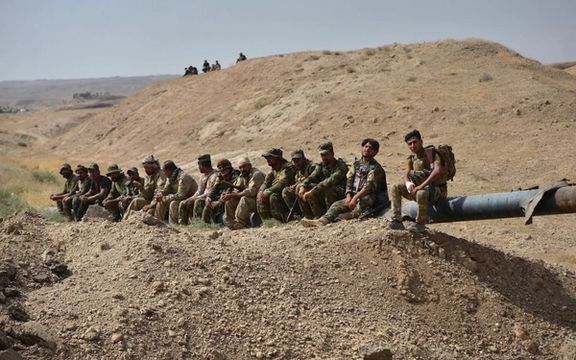
Iran’s top security chief is set to urge Iraqi Shia factions to expedite approval of legislation reforming the Popular Mobilization Forces and fully integrating them into the state security apparatus, a source told Iran International.
Iran’s newly appointed Supreme National Security Council secretary, Ali Larijani, is undertaking consultations as part of his first foreign trip since taking office.
The talks aim to secure backing from key Shia groups for the PMF law project, which seeks to formalize the status of Iran-backed militias integrated into Iraq’s security apparatus, according to the Baghdad-based source.
The source told Iran International that Larijani will meet with Shiite leaders to stress the “necessity” of passing the legislation.
Larijani arrived in Baghdad on Monday as part of his first regional diplomatic tour as Iran's top security chief that also includes Lebanon. He has indicated plans to sign a bilateral security agreement with Iraq and engage various political currents.
The timing of Larijani’s visit follows recent remarks by Iraqi Prime Minister Mohammed Shia al-Sudani, who emphasized that weapons should be controlled by the state and reported efforts to curb Iran-aligned militias’ participation in the June 12-day conflict between Israel and Iran. Iraqi authorities say they have prevented multiple planned attacks by these groups on US military bases.
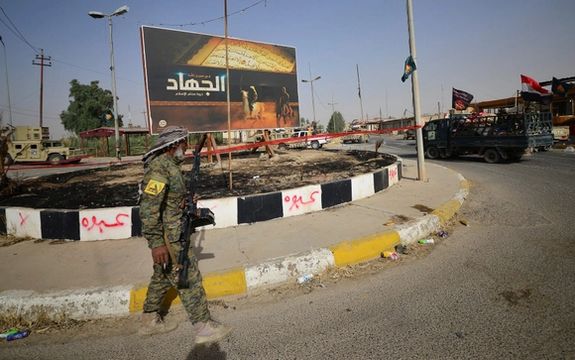
Since the 2003 US-led invasion of Iraq, the country’s security landscape has been significantly influenced by various militias, many of which maintain close ties with Iran.Among these, the Popular Mobilization Forces (PMF), an umbrella organization composed primarily of Shia militias, was initially formed to combat the Islamic State.
Although integrated into Iraq’s formal security forces in 2016 and legally subordinate to the Iraqi prime minister, the PMF continues to operate with a high degree of autonomy, with many of its factions maintaining strong Iranian connections.
The PMF consists of approximately 67 armed groups, nearly all of which are backed by Iran. These militias play a crucial role in Iraq’s security environment but have also been a source of controversy due to their influence and perceived external alignment.
Efforts to reform the PMF aim to reduce this influence by formalizing their integration under Iraqi state control.
In March 2025, the Iraqi parliament introduced draft legislation seeking to reform the PMF by placing it more firmly under the authority of the prime minister as commander-in-chief, explicitly aiming to limit external influence, including from Iran.
The proposed law also includes provisions such as a mandatory retirement age for senior commanders, potentially replacing key figures with longstanding Iranian ties.
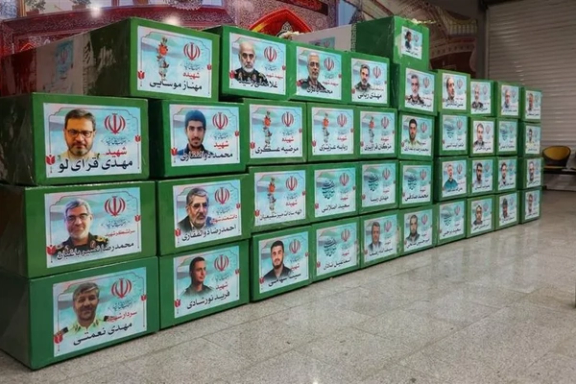
Over 40 days after a 12-day war with Israel left dozens of senior Revolutionary Guards dead, key command posts in Iran’s military remain unfilled, raising questions over the Islamic Republic’s operational cohesion.
The aftermath of Israel’s strikes, which dismantled parts of Iran’s military command structure in hours, continues to reverberate through the Revolutionary Guards.
The targeted attacks killed over 20 senior commanders, including Mohammad Bagheri, Chief of Staff of Iran's Armed Forces; Hossein Salami, IRGC Commander-in-chief; and Gholamali Rashid, Head of Khatam al-Anbiya Central Headquarters.
Some commanders died in their homes, others in a secure bunker during an urgent meeting said to be convened after a cyber-generated fake message.
In the immediate response, the system moved quickly to announce replacements — Abdolrahim Mousavi as new Chief of Staff of Iran's Armed Forces, Mohammad Pakpour as IRGC Commander-in-chief, and Ali Shadmani at Khatam al-Anbia.
Within five days, Shadmani was killed in what his daughter described as a car chase by an Israeli hit team.
The daily Kayhan wrote another commander had been appointed but withheld the name for security reasons, a report officials have neither confirmed nor denied.
Iran International’s review shows that other key posts remain vacant: the Armed Forces’ Deputy for Operations, previously held by Mehdi Rabbani; the Deputy for Intelligence, formerly Gholamreza Mehrabi; the IRGC Aerospace Force Intelligence post left by Khosro Hassani; and several regional intelligence commands.
Many of the 30 senior officers killed have yet to be replaced.
The attacks on June 21 also struck the IRGC’s external arm, killing Mohammad Saeed Izadi, who oversaw Palestinian operations, and Mohammadreza Nasirbaghban, the Quds Force’s deputy for intelligence. No successors have been named, even as Tehran seeks to rebuild its regional alliances after the conflict.
Silence surrounds IRGC navy chief’s absence
IRGC Navy chief Alireza Tangsiri has been absent from public view for nearly two months.
Tangsiri, who between late-March and early June appeared in over 20 official interviews and speeches in nearly 75 days and repeatedly issued harsh warnings to the US and Israel, has had no public or media presence for almost two months, since just before the war began.
On August 8, state media published a written message under his name for National Journalists’ Day, but it remains unclear if he authored it.
A source familiar with the matter, speaking anonymously, said Tangsiri has cancer and that his deteriorating health has kept him out of public events.
His absence, coupled with the unfilled naval command posts, is costly for the armed forces’ structure.
Attempted fixes and lingering risks
In an effort to restore coordination, the Islamic Republic has formed a Defense Council comprising representatives from the army, IRGC, intelligence ministry, and general staff. Chaired by the president, with Supreme Leader envoys Ali Shamkhani and Ali Akbar Ahmadian as members, the council is intended to bridge operational gaps.
Still, without permanent appointments to critical posts — especially in operations, intelligence, the Quds Force, and the navy — Iran’s military command remains in flux.
The continuing vacancies, layered over the unprecedented loss of top brass, point to more than a temporary disruption. They suggest a deeper challenge to the Revolutionary Guards’ ability to maintain both strategic direction and battlefield command.
